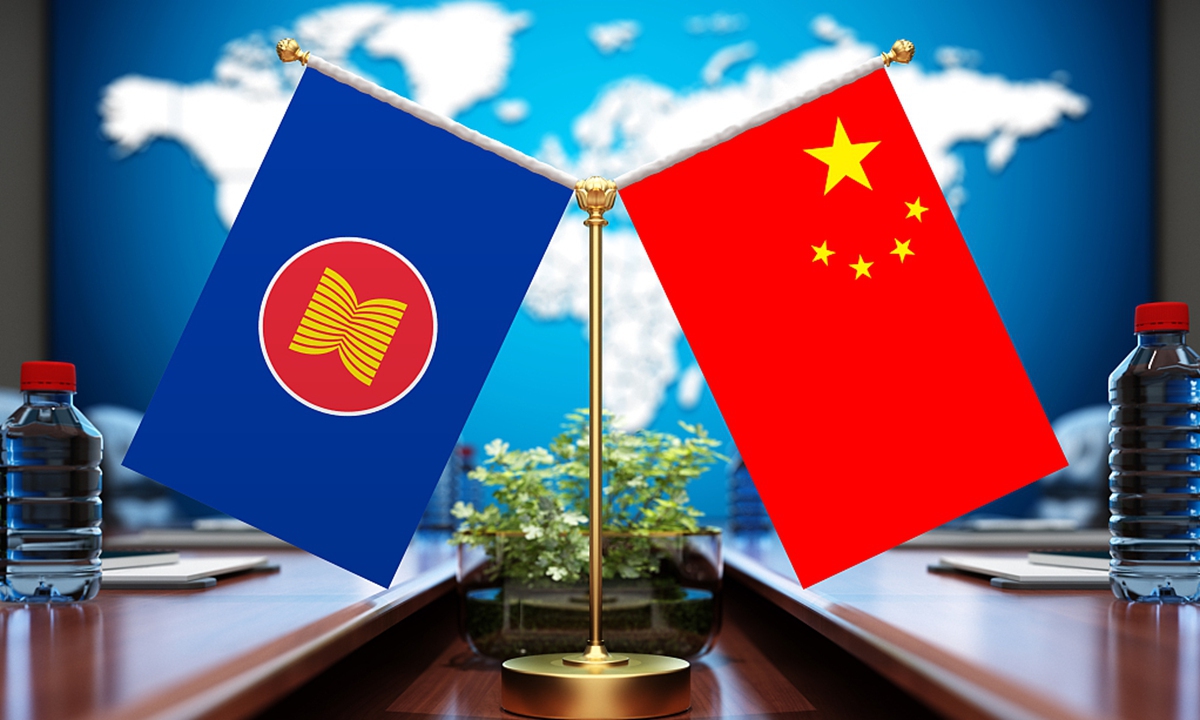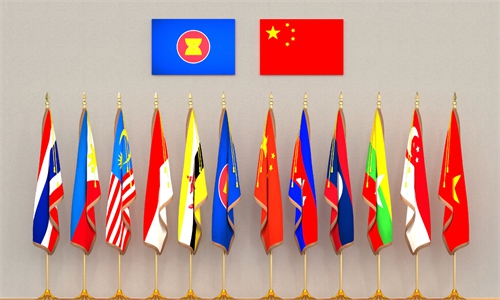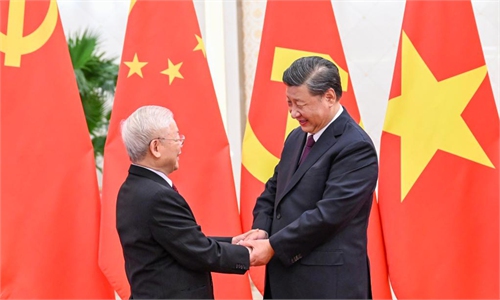Defining 'Asian moment' with solidarity, not confrontation: Global Times editorial

Photo: CFP
The ASEAN Summits and a series of leaders' meetings on East Asia cooperation will be held in Phnom Penh, Cambodia from November 8 to 13, followed by the G20 summit, which will be held in Bali, Indonesia from November 15 to 16. The Asia-Pacific Economic Cooperation (APEC) summit will be held in Bangkok, Thailand from November 18 to 19. Within 10 days, Southeast Asian countries will host three large regional and international summits one after another. Although there are coincidental factors in the timing and location of the arrangement, gathering leaders to discuss world affairs is undoubtedly the highlight of Southeast Asia and even Asia, or "the global governance is entering its Asia moment." Of course, it needs to be further defined by Asia's practical actions.To sum up the current challenges facing human society in one sentence, the theme of the era of peace and development is under serious impact. This is very visibly reflected in the Russia-Ukraine conflict that has erupted in Europe and the confrontation between opposing camps promoted by the US around the world. Asia is also inevitably affected, but with the efforts of all parties, Asia has maintained its overall stability and demonstrated strong momentum for development, as both regional economic and trade cooperation and the negotiation of the Code of Conduct in the South China Sea have made significant or even breakthrough progress, becoming an oasis in the midst of change and chaos. At a time of "strong geopolitical storms," this is not easy and should be cherished.
Asia is a large and complex continent, but the overall characteristic is that there are many developing countries, and the differences, pluralism and richness of different countries in terms of history and culture, political systems and development levels are outstanding. On the one hand, the collective will and drive for peace and development are strong. On the other hand, due to many divergences, immature regional dispute settlement mechanism, and the interference of external factors, cracks and frictions could easily appear and even evolve into conflicts.
In other words, Asia's "congenital conditions" are not good, but in the past few decades, it has achieved overall peace, stability and inclusive development of win-win cooperation, injecting paradigmatic, healing and uplifting power into the region and the world. The most important experience that governance in Asia can provide to global governance is to seek common ground while reserving differences, to tide over difficult times with unity, to expand and consolidate common interests and consensus through mutually beneficial cooperation, and to drive the entire region's common pursuit for peace and development. At the three upcoming summits, this "Asian experience" should be shared and valued on a larger scale.
Against the backdrop of turbulent changes in the world and deepening global predicament, the world expects the "Asian moment" to provide inspiration for promoting global economic recovery and bridging geopolitical differences, and even find solutions. ASEAN's 2022 chairmanship theme is "ASEAN A.C.T.: Addressing Challenges Together." Indonesia has set its tag line of G20 presidency as "Recover Together, Recover Stronger." Thailand has set the theme of APEC in 2022 as "Open. Connect. Balance."
It is worth noting that the Ukrainian Foreign Minister Dmytro Kuleba will, according to media reports, also attend ASEAN Summits for the signing of the Instrument of Accession to the Treaty of Amity and Cooperation in Southeast Asia. This is considered to be a manifestation of ASEAN's unique role in resolving conflicts in the international community.
But it should be also noted that at a time when Asian countries hope to take this opportunity to jointly build an anchor for world peace and stability, a driving force of growth, and a new high ground for cooperation, some non-regional countries want to regard this series of meetings as a stage for a "political tug of war." It was reported by US media that Biden's purpose of attending the US-ASEAN summit in Phnom Penh is to expand US influence and "counter China." Many analysts believe that ASEAN will strive to maintain its centrality in relevant meetings, avoid taking sides among major powers, and focus on promoting global recovery and reconciliation. Washington should listen carefully to Asia's voice, respect Asia's position and learn from Asia's wisdom.
For a long time, China, ASEAN and other regional countries have upheld open regionalism. China and ASEAN successfully established a comprehensive strategic partnership last year, with both sides comprehensively upgrade their cooperation. China has always firmly supported ASEAN's unity and centrality, and "our respective circles of friends may well engage in constructive interactions and develop in parallel." In other words, to develop ties with China, there is no pressure to choose sides, only the driving force of unity and joint progress. This is what every country that deals with China can really feel.
Interestingly, in regard to Washington's postures at these meetings, international public opinions have a common yet reflexive expectation: the US will likely make an issue of China again and bring confrontational thinking into these important multilateral occasions. This is a deep impression that Washington has left to the world in recent years. We hope the US can prove this anticipation wrong, and demonstrate its responsibility as a major country with a healthy mentality and constructive actions.


